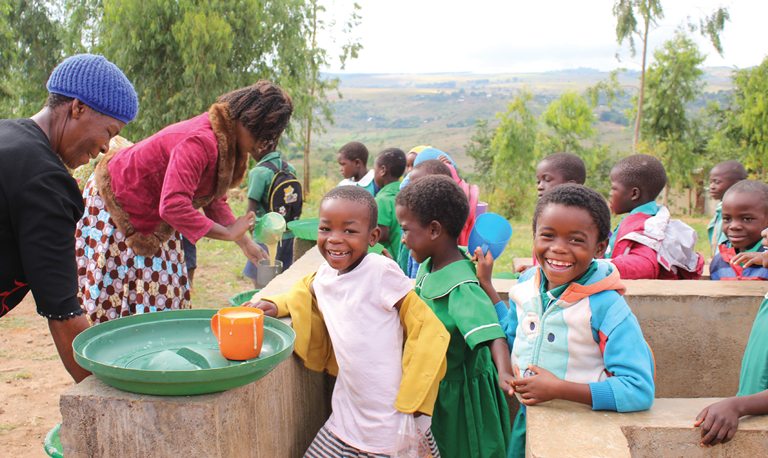Meals for young dreamers
During school days, Rose Saidi, a mother of four, leaves home as early as 3 am.
Her task is simple: To help cook porridge for the learners he fondly calls “our children”.

The volunteer and her 39 colleagues have become go-to heroes in the school feeding programme supported by Mary’s Meals at Kapeni Demonstration Primary School in Blantyre.
“What makes me proud of my voluntary work is the joy of helping over 7 000 learners, mostly those from poor backgrounds, to learn without worrying about hunger,” she says.
Interestingly, Saidi’s husband understands and appreciates her work.
She says: “We also have two kids at the school who are benefitting from the school feeding programme.
“I am always happy to see learners, including my own children, who come early to school on empty stomachs get served their breakfast before they can attend classes. It is as well-pleasing to see that their performance improving.”
Saidi says while the programme is beneficial to a child’s early learning development, providing more cups to learners would help lessen the burden that some parents still have in providing feeding cups to their wards.
Saidi is among over 80 000 volunteers who prepare and serve Likuni Phala every school day to over one million children in 1 000 schools nationwide.
Through the feeding programme, Mary’s Meals seeks to see every child receive a daily meal in their place of education and that those who have more than they need share with have-nots.
The mission is to enable people to offer their money, goods, skills, time and through this involvement, provide the most effective help to the constrained in poor communities.
When the initiative started 20 years ago, Mary’s Meals was only serving 200 school meals.
Today, the organisation is feeding over 2.2 million children in 20 countries, including over one million learners in Malawi. Over half of them, about 51 percent, are girls.
Sanel Bonongwe, a Standard Eight leaner at Kapeni, is one of the girls benefitting from the programme. The 12-year-old aspires to remain in school until she becomes a medical doctor.
“Since I enrolled in Standard One in 2015, I have never been bothered by a lack of breakfast at home. I come to school every day on an empty stomach knowing well that I will access the porridge before starting classes,” she says.
Since she is not bothered by hunger, Sanel concentrates in class and hopes her dream will come true.
Her teacher Sellina Khanje is the school’s health and nutrition supervisor. She says just like Sanel, most of the learners are doing well in class, thanks to the school-feeding initiative.
She states: “The only challenge we have now is that we have little storage room and that some of the learners cannot afford cups for the feeding programme.
“As a result, they end up borrowing from their friends, but we would have loved it if the cups were distributed to all learners regardless.”
Currently, the feeding rate stands at over 96 percent.
Mary’s Meals country director Angela Chipeta Khonje says it costs K19 000 to feed a learner throughout the academic year.
However, despite feeding over a million learners, over four million children in the country are waiting for school meals.
“We want more people in Malawi to get involved and join the movement by volunteering as well as donating money or goods to buy food and other essentials so that we can feed the next vulnerable child waiting for Mary’s Meals,” Khonje says.
She commends some people of goodwill who have been donating to Mary’s Meals over the past two decades.
Khonje appealed for more individuals and the private businesses to help feed more vulnerable children.
“There is still so much to do with so many more children out there who are hungry and are in need of Mary’s Meals, so we keep going by raising awareness and funds so that we are able to reach the next vulnerable child,” she explains.






One Comment